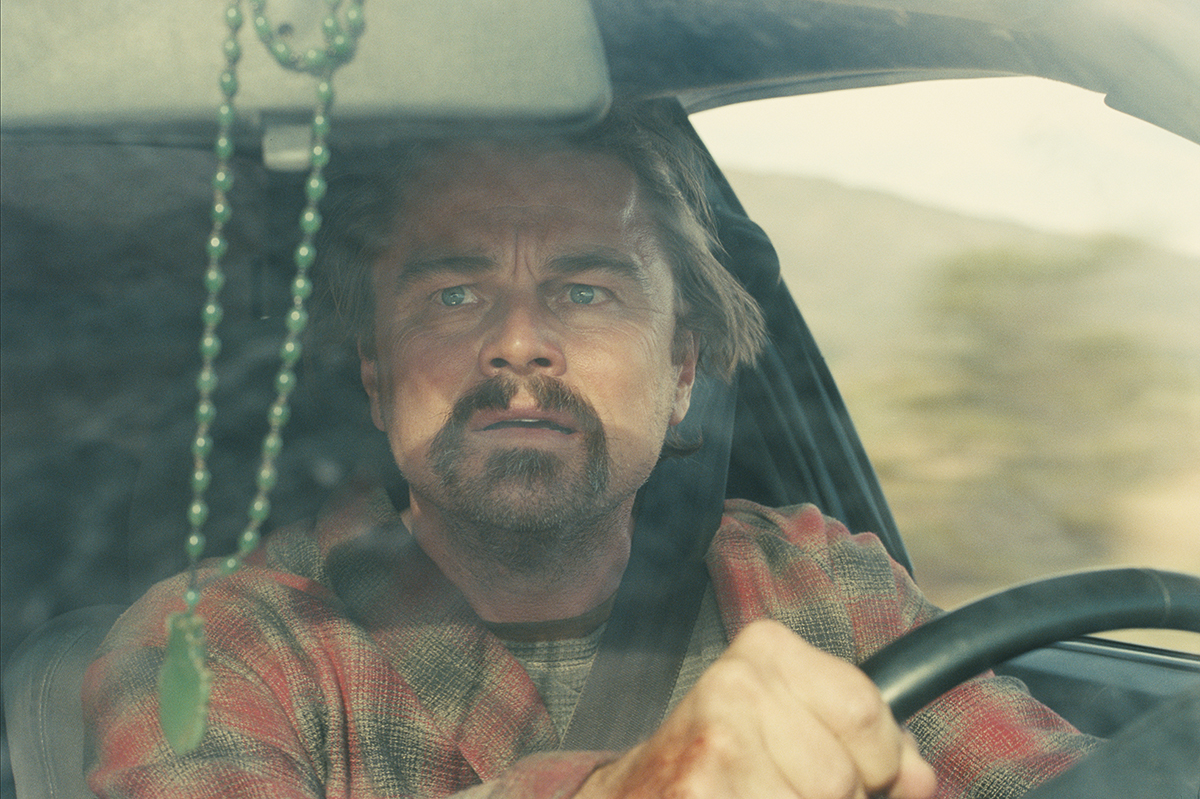You Were Never Really Here is a fourth feature from Lynne Ramsay (Ratcatcher, Morvern Callar, We Need to Talk About Kevin) and the first thing to say is that it is exceptionally violent. I don’t say this disapprovingly but if your threshold for violence is as low as mine — I incurred a paper cut the other day and passed clean out — it will prove an 89-minute ordeal. Still, it has been described as ‘the Taxi Driver for the 21st century’, if that is of help while you’re bracing yourself for the next hammer blow. Personally, I found it of no help at all. Also, it’s untrue.
The film stars a bulked-up Joaquin Phoenix as Joe, a tortured hit man, and it opens as it means to go on. That is, not prettily. Joe is in a Cincinnati hotel room with a plastic bag over his head self-asphyxiating, although whether this is auto-erotica or a suicide attempt isn’t made clear, just as little is ever made clear. It’s horrific to watch, as the bag sucks in, blows out, sucks in, blows out. But then he rips it off — thank God! — and moves on to his next task, which is washing a bloodied hammer. (Oh.) He’s concluded a job, we can assume, and exits the hotel’s back entrance where an attacker seems to be lying in wait. But you don’t mess with Joe. Crunch! That’s the attacker, getting a head-butt for his trouble. Next, it’s back home to Queens, where Joe lives with his mother (a fabulous Judith Roberts) and is hired for his next job: finding a senator’s missing 13-year-old daughter. (Always a missing child; never a missing cheesemonger.) Joe seems to specialise in rescuing sex-trafficked girls, and this one is holed up in a Manhattan brothel, which he enters politely, after wiping his feet. Nope, out comes the hammer. He loves a hammer, does Joe.
Based on the novella by Jonathan Ames, the film has the casual, sadistic violence of a Tarantino film, but none of the narrative inventiveness, as far as I could fathom. Or narrative clarity. I was often muddled. It is aggressively non-expositional, with sparse dialogue and no back story beyond Joe’s hallucinatory flashbacks, which are often bewildering. (I think I got his violent upbringing, but a dying child’s foot twitching in the sand?) I don’t wish to be spoon-fed, but the violence is gratuitous unless there’s sufficient psychological ballast to help us understand, connect, perhaps sympathise. That just does not happen here.
It does come with a terrific Jonny Greenwood score that replicates, presumably, the brutal jangle in Joe’s head. Phoenix is a powerful presence, and there’s some wonderful cinematography, but it’s hardly genre-busting. Joe is the damaged loner we’ve seen umpteen times before. And it’s hardly Taxi Driver, as I never felt it was saying anything beyond violence begets violence, so here’s 89 minutes of it, and a tooth being extracted with pliers.
And now Bombshell: The Hedy Lamarr Story, a documentary about the one-time Hollywood star — the most beautiful woman ever, according to Mel Brooks. It’s a proper story alright, and a fascinating one, and you don’t have to brace yourself for hammer blows, which is always a relief. The film covers her Austrian childhood, her several marriages, her career (the first on-screen orgasm; uppers and downers from MGM) and… and… what else? Drums fingers. Has a think. Oh yes, she was always scientifically minded, and during the war invented ‘frequency hopping’, which would keep the enemy from interfering with a ship’s torpedoes. Although it was never taken up by the American navy (stupidly), it has since formed the basis of Wi-Fi and Bluetooth and all the other stuff we have today. ‘A crime-fighter by night’ is how one current Google employee describes her.
So there’s that but, as written and directed by Alexandra Dean, this is just as much an essay on beauty. How no one will take you seriously when you have it but, even so, when you lose it, so painful. I felt her pain more than I ever did Joe’s. When Hedy Lamarr could no longer be Hedy Lamarr she became a recluse, and if you watched HBO’s Feud, you’ll know this happened to Joan Crawford too (and Garbo, I suppose). I was minded of Joan Collins who once said: ‘The problem with beauty is that it is like being born rich and getting poorer.’ Better, perhaps, to be born poor and stay poor. I may well be living proof…

























